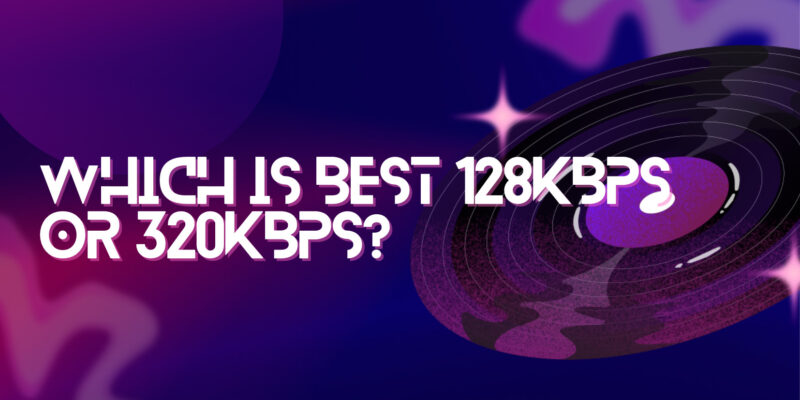When it comes to digital audio, bitrates play a crucial role in determining the sound quality of music files. The two most common bitrates encountered are 128kbps and 320kbps. But which one is best for your listening experience? In this article, we’ll compare 128kbps and 320kbps to help you make an informed choice based on your preferences and needs.
Bitrate Explained
Bitrate refers to the amount of data used to represent one second of audio. In the context of digital audio, higher bitrates generally lead to better sound quality, as they provide more data to accurately reproduce the audio. Let’s break down the key differences between 128kbps and 320kbps:
- 128kbps: This bitrate represents a lower level of data compression. It’s commonly used for streaming services like Spotify’s free tier and older MP3 players. While it offers reasonable audio quality, some details may be lost, especially in complex or dynamic music passages.
- 320kbps: At 320kbps, audio files are less compressed, retaining more audio data. This bitrate is often referred to as “high-quality” and is favored by audiophiles and music enthusiasts. It provides a crisper and more detailed listening experience, especially on high-end audio equipment.
Factors to Consider
When choosing between 128kbps and 320kbps, several factors come into play:
- Sound System: The quality of your sound system matters. On high-end audio equipment, the differences between 128kbps and 320kbps files are more noticeable. If you have a premium speaker setup or headphones, 320kbps may be a better choice.
- Listening Environment: Consider where you’ll be listening to music. In a noisy environment or on portable devices with basic headphones, the differences between bitrates may be less pronounced. 128kbps files can be sufficient for casual listening in such situations.
- Storage Space: Higher bitrate files consume more storage space. If you have limited storage capacity on your devices, you might opt for 128kbps to fit more songs. Conversely, if storage isn’t an issue, you can enjoy the enhanced quality of 320kbps files.
- Personal Preference: Ultimately, it comes down to personal preference. Some listeners are satisfied with 128kbps quality, while others prefer the richer sound of 320kbps. Try both and see which suits your ears and preferences best.
Conclusion
The choice between 128kbps and 320kbps depends on your listening equipment, environment, and personal preference. While 128kbps is suitable for casual listening and conserving storage space, 320kbps provides a higher level of audio fidelity, making it ideal for audiophiles and those with high-quality sound systems. It’s worth experimenting with both bitrates to determine which one aligns better with your music listening experience and priorities.


